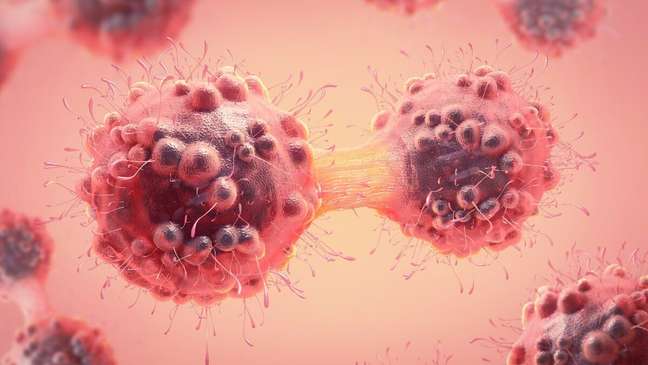Unicamp graduate student found pigment found in Rio Negro can block colorectal cancer metastases, as well as enable new treatments.

A doctoral student from Unicamp (Campinas State University) has made a discovery that could revolutionize cancer treatment. The university’s Institute of Biology PhD student Patricia Fernandes de Souza found that a natural substance produced by a bacterium native to the Rio Negro, in the Amazon, can prevent colorectal cancer from spreading.
This is violacein, a substance produced by the bacterium Chromobacterium violaceum, which has been studied for years especially in the fight against cancer. The University of Campinas laboratory has already studied the action of violacein on various types of cancer, such as leukemia and cancers of the prostate, pancreas and breast.
Under the guidance of biochemistry professor Carmen Veríssimo Ferreira-Halder, Patricia was able to verify that violacein is able to reduce or block the action of some proteins that allow tumor growth, cause metastases (spread to other parts of the body) and stimulate resistance to treatment.
The study aims to identify the main tumor agents that cause worsening of clinical conditions in order to deactivate them in the future. The researcher also seeks to provide information relevant to drug development.
Relevance of the discovery
According to Inca (National Cancer Institute), colorectal cancer is the second most common type among men and women. Patricia reveals that most patients are asymptomatic and only discover the tumor in the advanced stage of the disease, which reduces the chances of treatment success.
Therefore, the study focuses on the power of a cancer cell to become invasive and spread to other organs in the body, causing metastasis. With this, research has found that violacein can block this transformation and cause the cancer cell to die by apoptosis – the most suitable type of elimination, as it destroys the cell without causing patient-impacting reactions, such as an inflammatory response.
In addition, research has also shown that combining violacein with the chemotherapy drug 5-fluorouracil, widely used in cancer treatments, can improve the drug’s action and reduce the required doses by two to five times. Violacein’s ability to induce cell death by apoptosis also contributes to the development of new drugs that do not harm patients’ quality of life, a major challenge in cancer treatment.
Source: Terra
Benjamin Smith is a fashion journalist and author at Gossipify, known for his coverage of the latest fashion trends and industry insights. He writes about clothing, shoes, accessories, and runway shows, providing in-depth analysis and unique perspectives. He’s respected for his ability to spot emerging designers and trends, and for providing practical fashion advice to readers.








